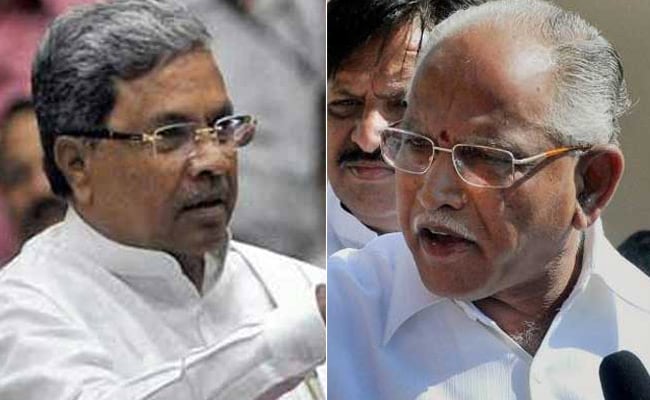
The Karnataka Assembly election 2018 is just three weeks away and both BJP and Congress have been campaigning aggressively across the state. The Congress is being led by chief minister Siddaramaiah, while the BJP is being led by former chief minister BS Yeddyurappa in the state. Their campaigns are being spearheaded by Congress president Rahul Gandhi and BJP chief Amit Shah, who have been campaigning in the state in multiple phases over the last month. While the incumbent Congress government is looking to win a second term, the BJP, which was in power till May 2013, is looking to make a comeback.
Here are 10 important things you need to know about the upcoming Karnataka Assembly Election 2018:
The current term of the Karnataka Assembly is due to expire on May 28, 2018, because of which elections are due in the state. The Election Commission of India has announced that Karnataka will go to polls on May 12 (date of voting) and the result will be declared on May 15 (counting of votes), after which the newly elected government will be sworn in.
The total number of assembly constituencies in Karnataka is 224, out of which 173 are reserved for the general category, 36 are reserved for Scheduled Castes and 15 for Scheduled Tribes. The Congress led by chief minister Siddaramaiah had won the previous assembly election in Karnataka in 2013 after it won 122 seats and having a vote share of 36.6 per cent. The BJP had come in second place with 43 seats, closely followed by HD Deve Gowda-led Janata Dal (Secular), which got 40 seats.
The 2018 Assembly election in Karnataka is being pitched as a direct battle between incumbent chief minister Siddaramaiah of the Congress Party and BS Yeddyurappa, who the BJP have projected as their chief-ministerial candidate. Mr Yeddyurappa has been a former chief minister of Karnataka from May 2008 to July 2011.
The battle for Karnataka has been high-pitched, with both the Congress and the BJP putting out aggressive campaigns in the state. BJP chief Amit Shah and Congress president Rahul Gandhi have been leading their party's election campaign in the southern state. Controversies began even before the Election Commission had announced the dates for the election process, with both the BJP and Congress announcing the election schedule on Twitter.
According to the Election Commission, the total number of voters as per the draft electoral rolls stands at 4,90,06,901 (approximately 4.90 crore), however the total number of voters as per the final electoral rolls stood at 4,96,82,357 (approximately 4.96 crore). Voting will happen in a single phase across the state. To check your name in the election list (electoral roll), click here.
The number of polling stations in Karnataka have gone up by 9 per cent since the previous assembly election in the state five years ago. The total number of polling stations for the 2018 assembly election are 56,696. In 2013, the total number of polling stations were 52,034. The election commission had announced that All-women managed polling stations will be set up in Karnataka for the first time, where the entire staff including polling staff, security, police personnel, etc will be women. One such station shall be set up in each of the 224 constituencies.
Electronic Voting Machines (EVMs) and Voter Verifiable Paper Audit Trail (VVPATs) will be used in all the polling stations across Karnataka. A two-stage randomisation of EVMs and VVPATs will also be done to enhance the transparency and credibility of the election.
Some of the key constituencies which will play a major role in deciding the next government in the state include Mysore (Mysuru), Mangalore (Mangaluru), Bellary, Udupi, Raichur, Badami, Bijapur North and Bijapur South.
BJP, Congress, Janata Dal (Secular) and Janata Dal (United) are the major parties contesting the elections. Some of the other regional parties include Coorg National Council, Karnataka Congress Party, Karnataka Vikas Party, Kannad Chalavali Vatal Paksha and Karnataka Kranti Ranga. These regional parties have an influence in their respective regions and respective castes, and will play an important role in case the major parties fall short of a majority mandate. Yogendra Yadav's Swaraj India will also be contesting the election.
With both the BJP and Congress making it clear with their election campaigns and outreach to the Lingayat community, the 'Lingayat vote' will play a crucial role in the upcoming election in Karnataka. The Siddaramaiah-led Congress government has proposed granting of a separate religious minority status to Lingayats and Veerashaiva Lingayats. The Lingayat community account for around 17 per cent of Karnataka's overall population. The BJP too has gone the extra mile to ensure that the Lingayat community, who have traditionally been BJP supporters, remain loyal to the party.

